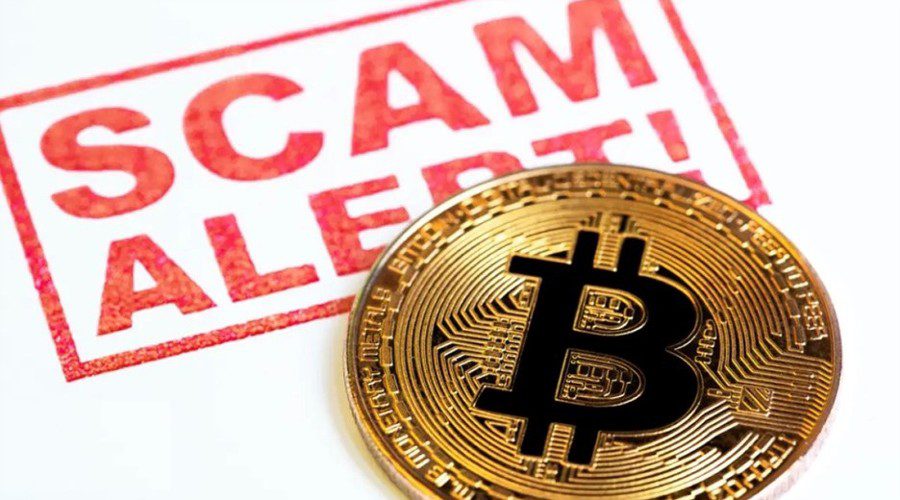Bitcoin Scam Alerts: What You Need to Know
Bitcoin has revolutionized the financial landscape, offering decentralized, peer-to-peer transactions without the need for intermediaries. However, its rise in popularity has also made it a prime target for scams and fraudulent activities. Understanding the various types of Bitcoin scams, how to identify them, and how to protect yourself is crucial for anyone involved in cryptocurrency.  This article aims to equip you with the knowledge needed to navigate the Bitcoin landscape safely.
This article aims to equip you with the knowledge needed to navigate the Bitcoin landscape safely.
Understanding Bitcoin Scams
Common Types of Bitcoin Scams
Bitcoin scams come in various forms, each designed to exploit the naivety or greed of individuals. Some of the most common types include:
- Ponzi Schemes: These involve promising high returns with little to no risk. Early investors are paid off with the funds from newer investors, creating the illusion of a profitable venture until the scheme collapses.
- Phishing: Scammers use fake emails, websites, or social media messages to trick individuals into revealing their private keys or other sensitive information.
- Fake Exchanges: These are fraudulent platforms that appear legitimate but are set up to steal deposits from unsuspecting users.
- Ransomware: Malware that encrypts a victim's data and demands payment in Bitcoin to decrypt it.
- Impersonation Scams: Scammers impersonate well-known figures in the cryptocurrency space to solicit investments or donations.
- Initial Coin Offerings (ICOs) Scams: Fraudulent ICOs lure investors with promises of new cryptocurrencies that never materialize.
Case Studies
Understanding real-world examples can help highlight the tactics used by scammers. For instance, the notorious BitConnect scam promised investors significant returns through a lending program. It turned out to be a classic Ponzi scheme, and investors lost billions when it collapsed. Another example is the Mt. Gox exchange hack, where approximately 850,000 Bitcoins were stolen, highlighting the importance of using reputable exchanges and securing one's assets.
How to Identify Bitcoin Scams
Red Flags to Watch For
Being aware of the warning signs can help you avoid falling victim to Bitcoin scams.
Some common red flags include:
- Unrealistic Returns: If an investment opportunity promises extremely high returns with little risk, it is likely a scam.
- Pressure to Act Quickly: Scammers often create a sense of urgency to prevent you from doing proper due diligence.
- Lack of Transparency: Legitimate businesses are typically transparent about their operations, team, and location. If this information is missing or unclear, proceed with caution.
- Unsolicited Offers: Be wary of unsolicited messages or emails offering investment opportunities or requesting donations.
- Anonymous Teams: Reputable projects are usually backed by known individuals. An anonymous team is a significant red flag.
Tools and Resources
Several tools and resources can help you verify the legitimacy of Bitcoin-related opportunities:
- Blockchain Explorers: These tools allow you to track Bitcoin transactions and verify the history of addresses.
- Regulatory Filings: Check if the company is registered with relevant financial authorities.
- Community Reviews: Look for reviews and feedback from the cryptocurrency community on platforms like Reddit, Bitcointalk, and social media.
- Security Audits: Legitimate projects often undergo security audits by reputable firms. Look for audit reports and certifications.
Protecting Yourself from Bitcoin Scams
Best Practices
Taking proactive steps to protect yourself can significantly reduce the risk of falling victim to Bitcoin scams. Here are some best practices:
- Educate Yourself: Stay informed about the latest scams and security practices in the cryptocurrency space.
- Use Reputable Exchanges: Only use well-known and regulated exchanges for buying and selling Bitcoin.
- Enable Two-Factor Authentication (2FA): Add an extra layer of security to your accounts by enabling 2FA.
- Secure Your Private Keys: Use hardware wallets or other secure methods to store your private keys.
- Verify Before You Trust: Always verify the legitimacy of websites, emails, and social media accounts before providing any information or making transactions.
What to Do If You’ve Been Scammed
If you suspect you have fallen victim to a Bitcoin scam, immediate action can help mitigate the damage:
- Report the Scam: Contact relevant authorities and report the scam. This can include local law enforcement, the Federal Trade Commission (FTC), and other regulatory bodies.
- Notify Your Exchange: If the scam involved an exchange, notify them immediately. They may be able to assist in freezing your account or tracking the transaction.
- Share Your Experience: Inform the cryptocurrency community about the scam to help prevent others from falling victim.
The Role of Regulation and Community in Combating Scams
- Regulatory Measures
Regulation plays a crucial role in combating Bitcoin scams. While the decentralized nature of Bitcoin presents challenges for regulators, there are measures being taken to protect investors.
For instance, the Securities and Exchange Commission (SEC) has been actively pursuing fraudulent ICOs and other cryptocurrency-related scams. Regulatory frameworks are evolving to better address the unique aspects of cryptocurrency.
- Community Vigilance
The cryptocurrency community also plays a vital role in combating scams. By sharing information, reporting suspicious activities, and educating newcomers, the community can help create a safer environment. Online forums, social media groups, and industry conferences are excellent venues for raising awareness and fostering a culture of vigilance.
- Future Developments
As the cryptocurrency space matures, advancements in technology and security are likely to reduce the prevalence of scams. Blockchain analysis tools, improved regulatory frameworks, and more robust security measures will all contribute to a safer environment for Bitcoin users.
Conclusion
Bitcoin scams are a significant concern in the cryptocurrency space, but with awareness and vigilance, you can protect yourself from falling victim. By understanding the common types of scams, recognizing red flags, and adopting best practices, you can safely navigate the world of Bitcoin. Stay informed, use reputable platforms, and always verify before you trust. The cryptocurrency community and evolving regulatory measures will continue to play a crucial role in combating scams and ensuring a safer environment for all users.












































